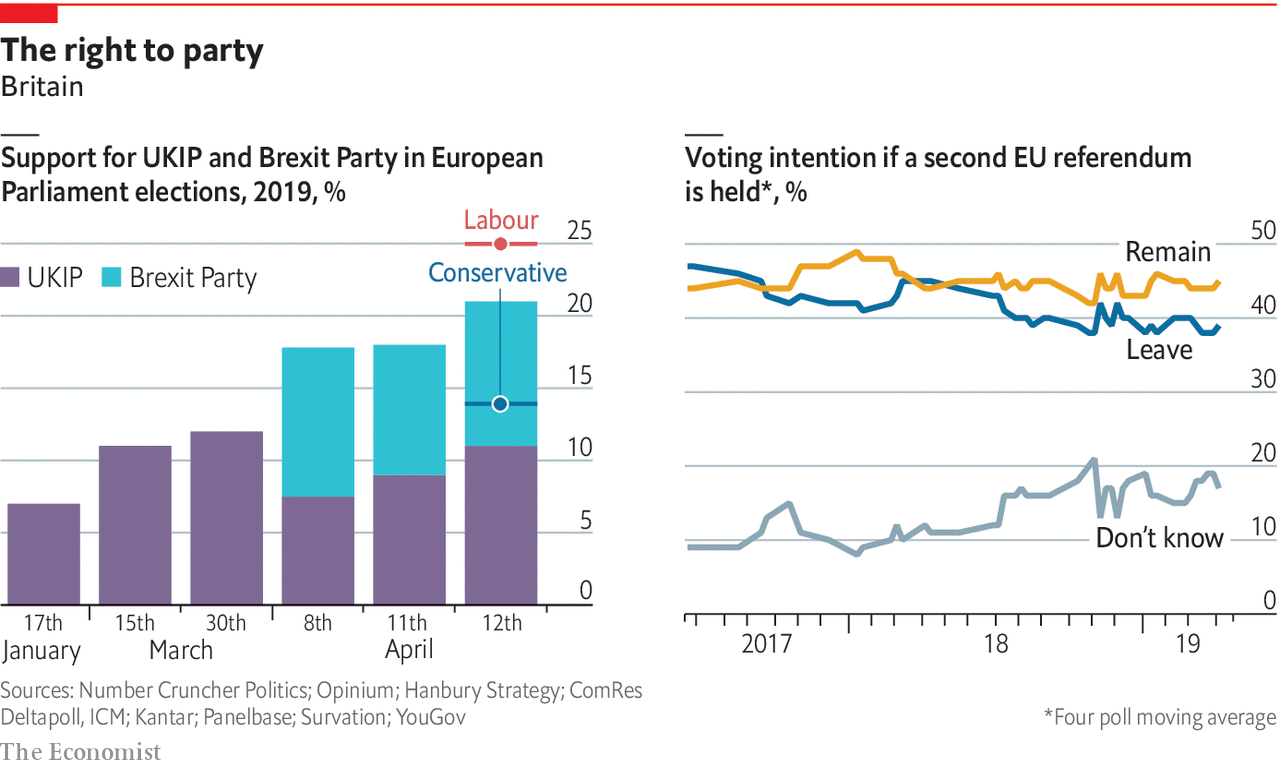Recent opinion surveys show the new Brexit Party is gathering support

Apr 15th 2019
BRITAIN’S NEW Brexit party has gathered support with remarkable speed. Formed in January 2019, it is already registering double-digit support in opinion polls and has nearly caught up with the UK Independence Party (UKIP), from which it split.
The new party is headed by Nigel Farage, the former leader of UKIP, who successfully pushed the Conservative party to call a referendum on Britain’s membership of the European Union in 2016—and helped the Leave campaign to victory. It was a stunning achievement for what had been regarded as a fringe party, and Mr Farage announced his retirement from politics. Now he is back.
Without Mr Farage, UKIP has drifted ever farther to the xenophobic far right under successive leaders. The Brexit Party, for its part, says it aims to draw support from across the political spectrum, from both Conservatives and Labour Brexiteers, to ensure that Britain leaves the EU.
The referendum marked UKIP’s high point. In the general election held in 2017 it received just 1.8% of the votes, down from 12.6% in 2015. Even as it became clear that Brexit—at least as hardline Brexiteers had imagined it—was running into trouble, UKIP still polled only about 4% on average in 2018.
But populist parties have regained momentum since the beginning of this year. The government lost one vote after another on its deal with the EU, and Brexit has been repeatedly delayed. The original deadline of March 29th has been pushed back to October 31st. Unless an agreement is reached soon, Britain will have to hold elections to the European Parliament next month, which will be another humiliation for Theresa May, the prime minister.
Populists and hard Brexiteers accuse members of Parliament of betraying Brexit. The latest survey gives populist parties a combined vote of 21%. The Brexit Party, which Mr Farage recently described as “a virtual” party, consisting of little more than a website, is just behind UKIP on 10%. Both are ahead of the pro-Remain Liberal Democrats on 8% and not far behind the Conservatives on 14%.
The contrast between the Brexit party and its mirror-image, Change UK, a new party made up of Remainers drawn from Labour and the Conservatives, is striking. Change UK barely figures in the polls despite having lots of favourable press coverage and several prominent MPs. It suffers from a serious branding problem: it faffed around with its name, does not have a leader and failed to present itself as a full-throated anti-Brexit Party. It could learn a lesson or two from the astute Mr Farage.